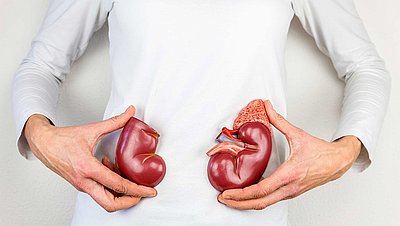Support possibilities
What is an Adverse Event (AE)
Any untoward medical occurrence in a patient or clinical trial subject administered a medicinal product and which does not necessarily have a causal relationship with this treatment [Dir 2001/20/EC Art 2(m)].
An adverse event can therefore be any unfavourable and unintended sign (e.g. an abnormal laboratory finding), symptom, or disease temporarily associated with the use of a medicinal product, whether or not considered related to the medicinal product (Annex 4 Guideline on good pharmacovigilance practices (GVP) Rev 4).
Reporting Side Effects
If you get any side effects, talk to your Doctor, Pharmacist or Nurse. This includes any possible side effects not listed in the package leaflet. You can also report side effects directly via the Yellow Card Scheme at www.mhra.gov.uk/yellowcard.
By reporting side effects, you can help provide more information on the safety of this medicine.
Report an Adverse Event
Adverse events should be reported. Reporting forms and information can be found at www.mhra.gov.uk/yellowcard. Adverse events should also be reported to Fresenius Medical Care on 01623 445 215 and via medinfo-uk@freseniusmedicalcare.com
Medical Information
Call 01623 445 100 (please choose option 5). Opening times are Monday - Friday 9am - 5pm.
UK/HEMA/FME/0922/0002 – Date of Preparation September 2022.
Self-help groups
Here, you can openly exchange information about your situation with other patients or simply talk to people who are experiencing similar things as you. The emotional cohesion that comes from such groups can be invaluable.
Emergency numbers
Make sure that all relevant people have access to emergency numbers and know what to do in case of an emergency. This creates safety for all of the people involved if something should happen.
Learning together
Offer to be involved in the learning process about dialysis as much as you can. The more you know, the better you can support and understand their situation.
Appointments
It can be helpful to accompany the patient to important medical consultations, especially if your relative’s/friend’s mental capacity is impaired. In particular, the decision to undergo a suitable form of therapy should ideally be supported by the patient’s family and friends.
Medication plan
Make sure that your relative/friend adheres to their medication plan that was set up by the attending physician. Medication therapy is designed to relieve symptoms of kidney disease and to preserve any residual kidney function for as long as possible. Failure to follow the medication regimen can lead to serious complications.
Diet
Encourage your relative/friend to follow dietary guidelines given by their healthcare team, as this can have a significant impact on the success of the treatment. You may enjoy trying out new recipes together.
Hygiene
Especially when choosing a home therapy method, it is very important to carry out the treatment steps in a sterile way and to observe hygiene measures. For your loved one, it is important to take care of the catheter exit site or the shunt to avoid infections and complications.
Being a partner during dialysis
For some patients, a trained partner is needed to carry out the treatment. If the decision is made for home therapy, you can be trained in the use of the necessary materials as well as the correct implementation of the treatment. You can learn together and support each other. In an emergency, it can also be helpful to have another person who is familiar with the details of the treatment.
You can find support from many people,from your loved one’s healthcare team, to your own family and circle of friends, to professional carers and organisations that specialise in working with people who have kidney disease.
Nursing services may be able to assist with your relative’s/friend’s care in different ways. From paramedic services to complete dialysis treatment in the home environment (assisted peritoneal dialysis), a wide range of support options may be found in your area to support you.
Social workers can help in many areas, especially when it comes to benefits, financial support and existing entitlements.
Seeking therapeutic help does not mean failure, nor is it a reason to be ashamed. Confronting a chronic disease poses challenges to the soul that may require a professional approach to overcome.
Always be aware: neither you nor your loved one need to walk this path alone!




